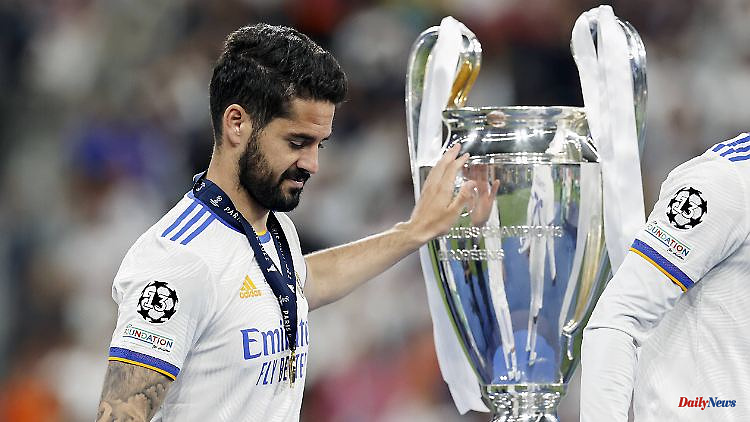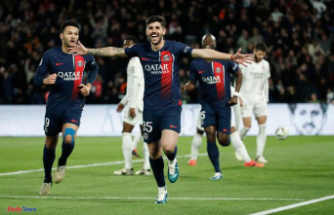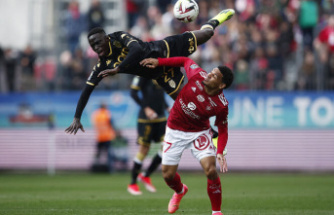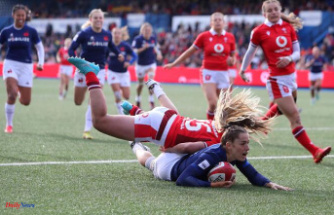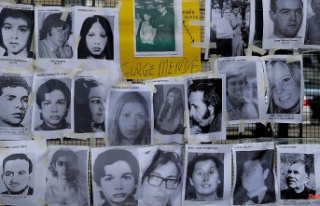He's not coming. King transfer Isco should shoot the Bundesliga second Union Berlin into unimagined spheres. But the change breaks up like the Spaniard's career. Possibly a positive result for the iron – because poker was dangerous.
"He's a big boost for us," said the coach. "Positive news for Union ahead of the [...] home game against Wolfsburg," reports the "BZ". The iron make a king transfer and can hardly believe it. After all, a real star is drawn to Berlin-Köpenick. A little aging maybe, but with big footballer laurels. It's 2005 and the former European champion Jörg Heinrich is moving to the then relegated club in the Oberliga Nordost (Nordost season).
Almost 18 years later, the whole of Köpenick is back on the wheel. This time, the mega-transfer - without wanting to be disrespectful - is much larger than a 35-year-old Heinrich. The five-time Champions League winner Isco is at the gates of the Alte Försterei, completing the medical check at Union Berlin. But then everything turns out differently. Freud turns into suffering, the Isco deal bursts at the last second. And for the FCU, that's potentially very good news.
The 30-year-old attacking midfielder from Spain is known for deadly passes, a dangerous right foot, stunning dribbling, elite ball control and the acumen and vision needed to dominate a match. For assists and goals. In short: Isco is always dangerous for every opponent on the football field. At least that's how many football fans and some experts want it to be remembered. Because it is unclear what the offensive artist is still capable of today, and a look at the recent past shows a career that has been collapsing more and more.
For Union Berlin itself, not for the opponents, Isco would have become dangerous in several ways. The hype surrounding the failed deal shows that. Because the name alone somehow seems too big, too overloaded, too ostentatious for the club: Francisco Román Alarcón Suárez. From his past decade as a footballer, Isco only knows elite and prestige. Is there self-aggrandizement? Unclear but possible. The fact that Isco also means drama can be seen in the negotiations. His team is said to have insisted on non-agreed demands. In Madrid he once tangled with coach Santiago Solari, and he also left Seville because of arguments with sporting director Monchi. A world star, albeit a former one, never arrives without his parcel. The iron just escaped the riskiest transfer in the club's history.
A look back at 2012. Isco caused such a sensation at FC Málaga that he received the Golden Boy award as the best young player in Europe. Then the Spanish U21 national team with Thiago and Álvaro Morata shoots to the European title. Then lead his club to the Champions League for the first time (even straight to the quarter-finals). And finally, in 2013, signing (and rebuffing Manchester City) with perhaps the most prestigious club in the world, Real Madrid. Pretty much every football connoisseur in the world is clear at this point: This 176 centimeters tall, agile and accurate 21-year-old will be the new megastar in the royal and in the Spanish national team.
Isco cost 30 million euros at the time, a sum that seems like a bargain to many. In his first six games in the famous white jersey, the playmaker has scored five goals, provided two assists and controlled midfield with a fabulous combination of tireless energy, agile dribbling and precise passing. Clubs from all over Europe squint enviously at Madrid. "Isco is the natural heir to world and European champions [Andres Iniesta; ed.], both in the national team and as a leading playmaker in La Liga," wrote the "Bleacher Report" at the time. At Real, the head coach, a certain Carlo Ancelotti, even calls out the comparison with his assistant at the time, which was actually forbidden forever. A certain Zinedine Zidane.
The French world champion lured Isco to the Spanish capital with a phone call. But unlike Zidane, Isco will never become the head of midfield at Royal after his furious start. The playmaker loses his place in the first year because Ancelotti wants to add 100 million euro Gareth Bale to the team and switch to 4-3-3. Defensive weaknesses, lack of speed and love of the ball are also blamed on the young star. The Galactics then stuffed their midfield squad with Kroos and James Rodríguez and neither Rafael Benítez nor Zidane really managed to develop Isco.
In the 2016/17 season, Isco shows what he's made of, especially in combination with Cristiano Ronaldo. Zidane switches to 4-3-1-2 and Isco is allowed to lead Real in his favorite position, 10th, to the league title and triumph in the premier class. But that was a long time ago, Union might never have seen this Isco. After the next success in the Champions League a year later, things are going down again for the Spaniard, who is sometimes even booed by his own fans. He has 27 league games left in 2018/19 (just three goals and one assist), 23 in 2019/20 (one goal, two assists) and in the next two seasons he has managed just one more goal as a substitute. Isco switched to Sevilla FC six months ago, a less than successful engagement that ended in 18th place by mutual agreement in winter.
Since then, the former world star has been without a club. It is questionable whether he could have inspired the Unioners in the long run. With them, who mostly play in a 3-5-2 system, Isco should have made qualifying for the Champions League possible. And the competitiveness next year in the premier class. But the Spaniard's recent performances do not speak for a real leap in quality. A little more unpredictability and genius, for example to be able to annoy the big players in football, would do Union well, but the club is convincing this year above all with uncompromising duels, with a defensive addiction that is very special to it. Slide tackle, body check, farming. You can do that without a superstar, even in Europe. Does Isco work on his opponents as aggressively, intensively and annoyingly as coach Urs Fischer demands of his team? How the three midfield biters, who have less illustrious names like Christopher Trimmel, Rani Khedira or Niko Gießelmann, would have asked him to do it?
Rather, Union is now escaping the dangers that such a royal transfer entails. It is quite possible that Isco would have played with similar airs and graces that his team was now showing in the negotiations. That he only saw Köpenick as a stopover on the way to a top club. As a means to an end. He would have brought the compact team structure, one of Union's great strengths, to crumbling. If he hadn't appreciated away trips to Wolfsburg and Leipzig in gray February and March as much as he did to Turin or London, the peace and quiet in tranquil Köpenick would have been ruined.
Fischer has proven that he can deal well with free spirits (see Max Kruse), but this transfer might have shaken the consistency and straightforwardness in the club that are so important for the current success. Maybe even the very successful current season. The advantage of the Köpenicker since promotion to the 2nd Bundesliga in 2009 was in danger: With Isco, they could no longer have continued to grow in secret and without great pressure of expectations and could not have surprised again and again. Isco would have brought a huge, unhealthy media attention, as the hustle and bustle of the past few days shows. Some people have already joked that the Irons are now making Big City Club after Hertha from the west, to which not even Isco's little brother would want to switch, failed so terrifically with this concept.
Eight months ago, Isco stretched his fifth handle pot into the Paris evening sky. One thing is clear: before the relegation of his career, the goal of Union Berlin would never have been an option for the Spaniard, who, despite his enormous talent, only played 38 international matches and took part in a major tournament, the 2018 World Cup. He probably still sees himself with one of the really big teams in Europe. The Köpenicker were only an emergency solution for him. One hundred percent identification with the club, as required by the club and the fans? Probably not.
And so Francisco Román Alarcón Suárez will no longer be Zidane at Union Berlin either. Jörg Heinrich endured at least half a year in Köpenick in 2005 before he gave up his active career and became sports director. Isco ended the next Köpenicker dream prematurely 18 years later - and perhaps before it could become Union's most dangerous nightmare. The attack on FC Bayern, as the past few weeks have shown, can also be successful.

